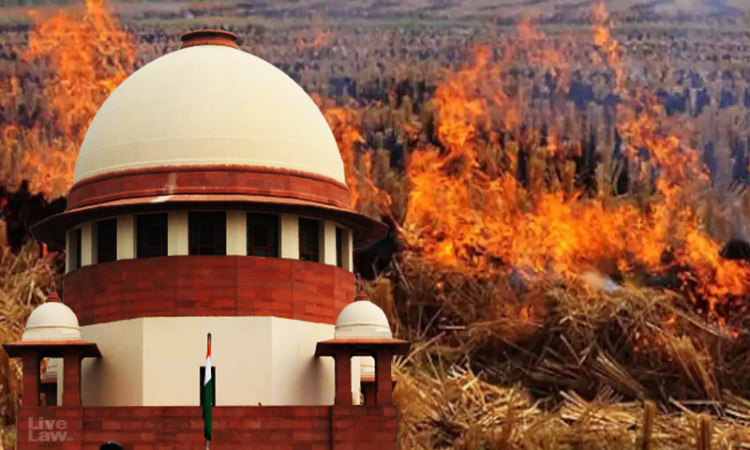Stubble Burning Violates Fundamental Right To Pollution-Free Environment Under Article 21: Supreme Court
Amisha Shrivastava
23 Oct 2024 5:38 PM IST

Next Story
23 Oct 2024 5:38 PM IST
The Supreme Court on Wednesday (October 23) emphasized that stubble burning is not merely an issue of breach of law but it constitutes violation of citizens' fundamental right to live in a pollution-free environment, guaranteed under Article 21 of the Constitution.“Time has come to remind us to the Government of India and the state governments that there is a fundamental right vesting in...
